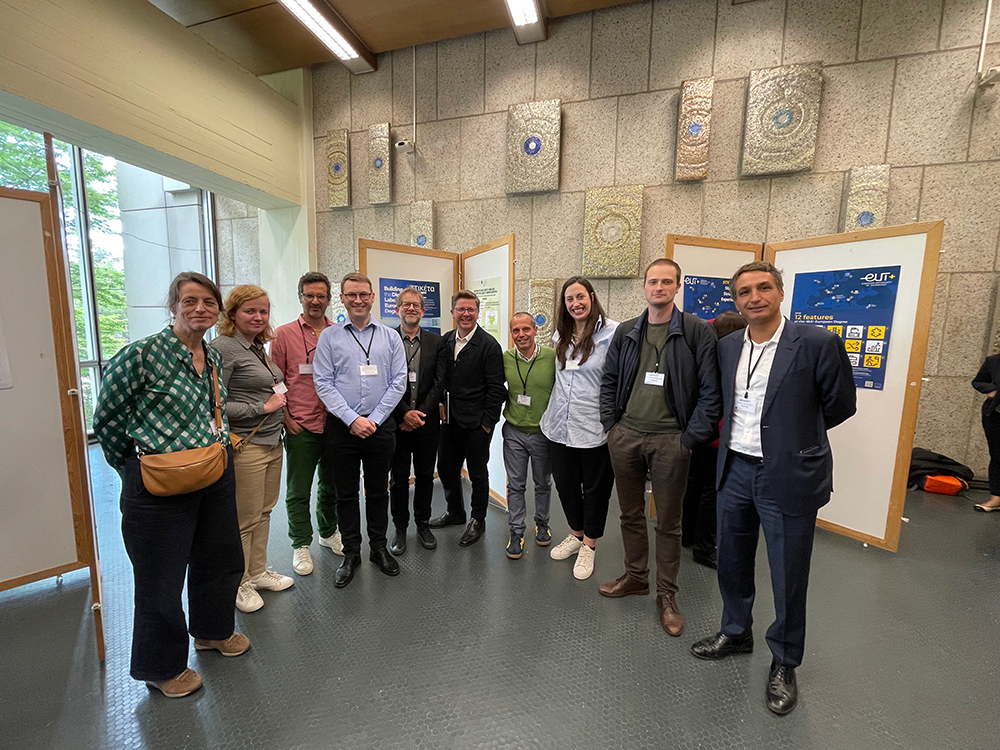News and Events
Around 1000 higher education institutions and Member States representatives gathered to call for the implementation of the European degree

During a conference on a blueprint for a European degree on 29 April in Brussels, which brought together more than 1000 participants – both in person and online -, higher education institutions from all across the EU have called on the European Commission, Member States and the wider higher education sector to take the next steps to make the blueprint for a European degree a reality. They stressed the need for strong coordination between Member States, legislative changes and sufficient funding at European, national and regional level for what promises to reshape the landscape of higher education across the continent.
10 Erasmus+ pilot projects have been testing over the past year the delivery of a European degree (label) and the establishment of a possible European legal status for alliances of higher education institutions. During the event, organised by the Erasmus+ pilot projects in cooperation with the European Commission, they presented the results of their work. They showcased the clear added value of increased and institutionalised transnational cooperation fostered by the European degree, both for students, staff, employers, higher education institutions, higher education systems and the EU as a whole. ETIKETA, coordinated by Lusófona University (Portugal) with partners LUCA School of Arts (Belgium); Tallin University (Estonia); IADT (Ireland) and the National Quality Assurance Agencies of Ireland and Flanders, promoted the design and test of the needed cooperation instruments for the delivery of joint European degrees. ETIKETA built on the experience of this consortium in promoting the European University FilmEU also led by Lusófona University and several existing joint degrees led by the same consortia. The main objective was to promote the value of these innovative transnational learning experiences and increase the visibility, attractiveness, and reputation of European Degrees provided by European Universities. ETIKETA included several research and design stages, amidst moments of joint reflection and public sharing of results, in order to facilitate the pilot delivery of a joint European degree label and the provision of joint degrees by European HEIs. The project can be followed in https://etiketa.filmeu.eu/ The conference was the first large event following the recent adoption of the European degree package comprising a Communication on a blueprint for a European degree and two proposals for Council recommendations to support the higher education sector. The European degree would pave the way for a new type of joint programmes, delivered on a voluntary basis at national, regional, or institutional level, and based on a common set of criteria agreed at European level. It is expected to make it easier for higher education institutions across Europe to set-up transnational joint degree programmes, boost learning mobility within the EU, enhance students' transversal skills, and help meet labour market demands, making graduates more attractive to future employers. Furthermore, it will attract students from around the world and bolster European competitiveness. “European Degrees represent the future of European Education and their creation represents the greatest transformation in the European Higher Education Space since the Bologna declaration” Manuel José Damásio, ETIKETA Coordinator Next steps This proposal for a blueprint is only the first step on the pathway towards a European degree. It launches formal discussions with the Council of the EU to adopt the European criteria and with Member States to engage in necessary reforms. Looking forward, the pilot projects are eager to capitalise on the insights gained during the pilots work and together with the wider higher education institutions engage in further discussions with the European Commission and Member States through the planned European Degree Policy Lab and the European Degree Forum, in order to develop a common understanding of the principles and criteria underlying the European degree. In autumn 2024, the Commission will also present the final report synthesising the results of the Erasmus+ pilot projects. Background In 2022, the European Commission launched an Erasmus+ call on the joint European degree (label) and the European legal status for alliances of higher education institutions. Ten Erasmus+ pilot projects started their operations in Spring 2023. Six pilots aimed to test the European criteria for a European degree (label), pilot a joint European degree (label) and provide recommendations to facilitate the development and implementation of joint degrees in Europe in line with these European criteria. Four pilots involving alliances of higher education institutions tested a possible European legal status for these alliances. The aim of this legal status is to give any type of alliance of higher education institutions, on a voluntary basis, the latitude to act together, including on designing joint curricula. The projects provided recommendations for a possible future European legal status, with specific features tailored to the higher education sector.